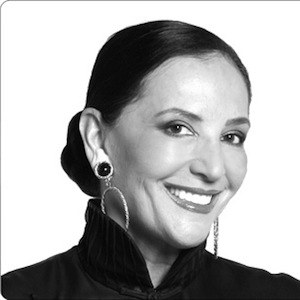
Sharing is Caring
Browse Categories
Five Things My Literary Agent Taught Me About Publishing Success by Tim Sanders
November 30, 2012
In 1999 I first met literary agent Jan Miller. At the time, I was working for Mark Cuban at broadcast.com and just starting to speak at conferences. I had an idea for a book and a keynote called Gonzo Biz. She saw potential in me and took me under her wing like she did for Dr. Stephen Covey Sr., Tony Robbins and Phil McGraw. Every meeting with her was a workshop on what it took to be successful and have several books published during my career. When I've met potential business or advice authors, I'd share her greatest hits, and in many cases, it's changed their perspective for the better.
Here are 5 pieces of advice from Jan Miller:
1. Write for Betty in Boise - She learned this working with Dr. Phil McGraw. It sounds simple, but most authors cannot pull it off. Instead, they write for Marie-Claire in Manhattan or Cindy CoolShoes from Seattle. The key is to have a broad appeal from rurual to urban to suburban and beyond.
2. A great book is a presentation given a thousand times - Stephen Covey Sr. told her that, probably reference his master piece (The 7 Habits of Highly Effective People). His training company conducted hundreds of seminars prior to writing the book. The value here comes from audience feedback. Each presentation gives you a chance to discover what works, and hone the bits and stories into gold. Don't write, then speak about it ... like most modern day authors. You get weaker books that way.
3. A book must "work". Promotion just gives it a chance to work - She learned this working with all of her authors over time. Her point is that books must connect deeply with readers, so the reader tells all of his friends to buy the book. While you sleep, your book is working, promting itself via its quality. Without word-of-mouth or BIG media, books languish in obscurity. Marketing and promotion places the book into enough hands for the resulting word-of-mouth to make a big difference. To write a book that works: Write what you know and then show us who you are. Be generous, helpful and provocative.
4. Words that sound good don't always look good on paper - To understand what will work, you need to look at the words and imagine you are a reader in a bookstore or online. She shared a few stories about authors who had a killer seminar, but when it was transposed into written format people didn't get it. You can use your blog or LinkedIn/Facebook communities to vet concepts, passages or phrases for their effectiveness. Beware of someone, who in conversation with you, gets excited about what you are saying and declares, "you should write a book about it."
5. You are as valuable to a publisher as your last book - This is the cold reality of publishing. The biggest advances usually go to unknown quantities or bankable authors. Most editors create a profit and loss statement to calculate an advance. When there's a known sales figure from the last book, it becomes the driver of that formula. If you have a track record, and it's mediocre, you'll get mediocre offers for your next book. Yes, the timing might have been bad, but that doesn't really matter - you are still only as valuable as your last book. There are, however, 2 ways out of author jail if you publish a book that doesn't work: A big/unique idea that's formulated into a kick-butt proposal OR you get famous/infamous. (See my last post: The Surprising Truth About How Publishers Buy Books)
.

About Tim Sanders
Tim is a bestselling author and former Yahoo! executive with a mission to disrupt the traditional publishing and self-publishing industries and share knowledge with authors looking to publish and market high-quality books.
Follow @sanderssays